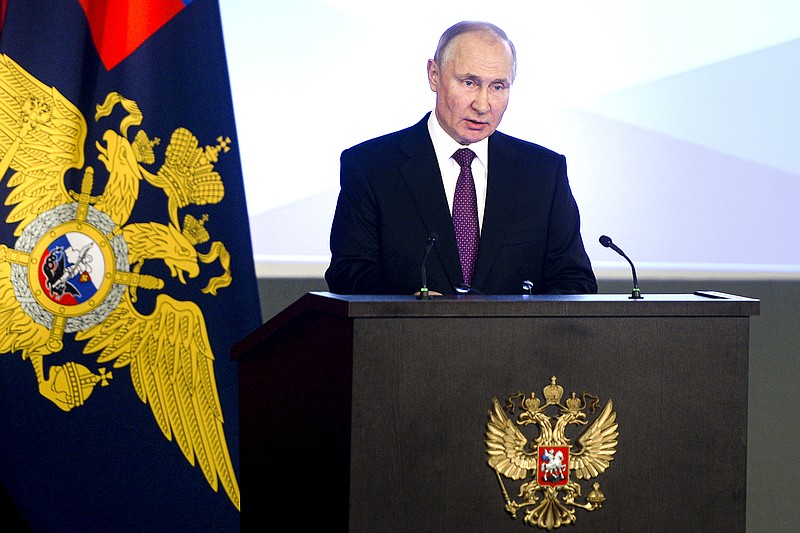MOSCOW -- The Kremlin on Wednesday shrugged off new Western sanctions over the poisoning and arrest of Russian opposition leader Alexei Navalny as unfounded and pointless -- but warned that Moscow will retaliate.
U.S. President Joe Biden's administration sanctioned seven Russian officials Tuesday, along with more than a dozen government entities, over the nerve-agent attack on Navalny and his subsequent jailing. It coordinated the move with the European Union, which expanded its own sanctions Tuesday.
Commenting on the U.S. and the EU decisions, Kremlin spokesman Dmitry Peskov said the sanctions against top Russian officials that include a freeze on their bank accounts duplicate Russia's own law that bans them from having financial and other assets abroad.
"These people don't make foreign trips anyway and they don't have the right to open accounts in foreign banks or have any other foreign assets," Peskov said in a conference call with reporters.
At the same time, he added that the U.S. and EU restrictions "represent meddling in Russia's internal affairs" and are "absolutely unacceptable, inflicting significant damage to the already poor ties."
Peskov warned that Russia now will choose a "response that would best serve our own interests," adding that the relevant state agencies would draft their proposals and submit them to the Kremlin.
"The principle of reciprocity in relations between states can't be abandoned," he said.
Navalny, the most prominent critic of Russian President Vladimir Putin, fell sick Aug. 20 during a domestic flight in Russia and was flown while still in a coma to Berlin for treatment two days later. Labs in Germany, France and Sweden, and tests by the Organization for the Prohibition of Chemical Weapons, established that he was exposed to a Soviet-era Novichok nerve agent. Russian authorities have denied any involvement in the poisoning.
Navalny was arrested Jan. 17 upon returning from Germany, where he spent five months recovering from the poisoning. His arrest triggered massive protests, to which the Russian authorities responded with a sweeping crackdown.



